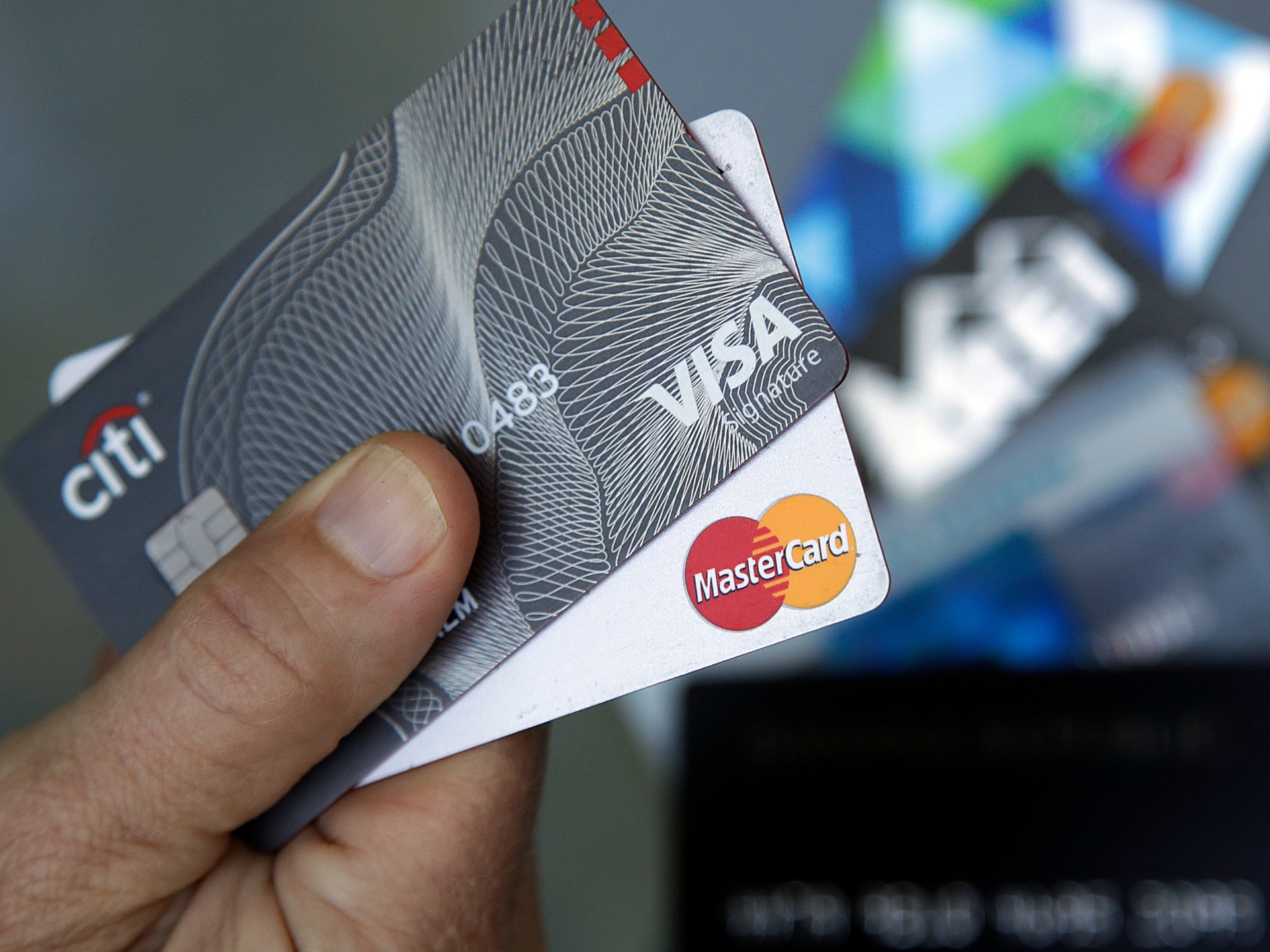
Merchants have long accused the payment network of charging inflated ‘swipe fees’ when shoppers use their cards.
Visa and Mastercard have reached an estimated $30bn antitrust settlement to limit credit and debit card fees for merchants in the United States, with some savings likely to be passed on to consumers through lower prices.
If it receives court approval, it would resolve most claims in nationwide litigation that began in 2005. However, some opponents believe it may not go far enough.
Merchants have long accused Visa and Mastercard of charging inflated swipe fees or interchange fees when shoppers use credit or debit cards and barring them, through “anti-steering” rules, from directing customers toward cheaper means of payment.
According to Bankrate.com, swipe fees typically include small fixed fees plus a percentage of total sale amounts and average about 1.5 percent to 3.5 percent per transaction.
Under the settlement, Visa and Mastercard would reduce swipe rates by at least four basis points (0.04 percentage points) for three years and ensure an average rate that is seven basis points below the current average for five years.
Both card networks also agreed to cap rates for five years and remove anti-steering provisions.
Merchants will have more discretion to offer discounts or impose surcharges on cards with higher interchange fees.
Many already warn customers that at checkout that they will pay more using cards instead of cash.
The fee rollbacks and caps alone are worth $29.79bn, according to court papers, and Visa estimated that small businesses comprise more than 90 percent of the settling merchants.
In agreeing on the settlement, Visa and Mastercard denied any wrongdoing.
In separate statements, Visa’s North American President Kim Lawrence said the accord addressed “true pain points” identified by small businesses, while Mastercard General Counsel Rob Baird said it offered “substantial certainty” to businesses.
Visa and Mastercard shares each grew by less than 1 percent in afternoon trading, with Baird analyst David Koning writing that the settlement removes an “overhang of uncertainty.”
The settlement requires approval by US District Judge Margo Brodie in Brooklyn, New York, likely not before late 2024 or early 2025, and appeals are possible.
‘A drop in the bucket’
The Retail Industry Leaders Association, which represents businesses that employ more than 42 million Americans, said the settlement required closer review but amounted to “a mere drop in the bucket”.
TD Cowen analyst Jaret Seiberg wrote that small banks and credit unions might object because big retailers such as Walmart could cut deals with larger banks for cards that offer discounts at checkout.
However, he said the accord reflects “extraordinary concessions” by Visa, Mastercard, and banks because merchants can impose surcharges on airline and cash-back credit cards, though few may do so because they would rather complete sales than save on fees.
Last March, the federal appeals court in Manhattan upheld a $5.6bn class-action settlement by Visa and Mastercard, covering damages for about 12 million merchants, but did not resolve what kinds of fees could be imposed.
Tuesday’s settlement attempts to do that but would not resolve damages claims by merchants who opted out of the $5.6bn settlement and sued separately.
Read More: World News | Entertainment News | Celeb News
Aljazera










